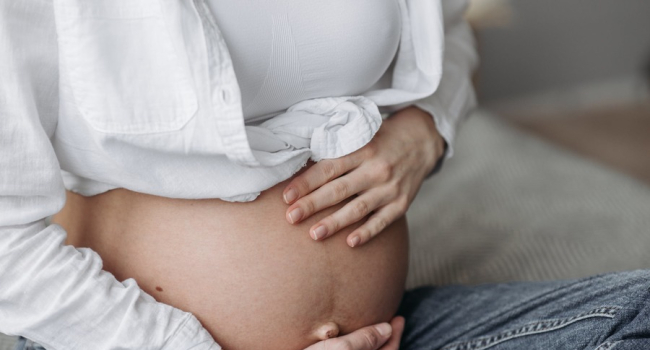- Latest news▼
-
13:58, June 26 Armenia addiction treatment national center director: 210 patients with drug addiction received treatment in 2023

-
08:42, June 26 Multiple brands of ice cream recalled in US due to listeria fears

-
19:31, June 25 MedXpress: pain medications increase sensitivity to sunlight

-
15:09, June 25 World Health Organization reports more than 3,100 cases of mpox worldwide

-
08:38, June 25 Experts discover why some people don't get infected with COVID-19

-
23:22, June 24 Foods that effectively lower blood sugar level are revealed

-
08:36, June 24 Researchers uncover hidden DNA mechanisms of rare genetic diseases

-
08:49, June 22 Research confirms link between snoring and hypertension

-
00:22, June 21 Researchers find out which group of people is genetically prone to obesity

-
19:20, June 20 Existing high blood pressure drugs may prevent epilepsy - study

-
17:24, June 20 Biology Methods & Protocols: Artificial intelligence will soon be able to detect cancer

-
11:27, June 20 Fetal hypoxia and maternal stress can lead to nicotine dependence

-
08:39, June 20 Is coffee addiction ‘hereditary?’

-
01:38, June 20 Scientists found a stronger immune response to influenza in people who were infected as children

-
22:50, June 19 Deadly bacterial infection is spreading across Japan

All materials
Fetal hypoxia and maternal stress can lead to nicotine dependence

Scientists from St. Petersburg have found that fetal hypoxia combined with maternal stress can lead to nicotine addiction in a child as an adult. This was reported to TASS in the press service of St. Petersburg State University (SPbSU).
"Scientists of St. Petersburg State University and the Institute of Physiology named after. I.P. Pavlov Institute of Physiology of the Russian Academy of Sciences conducted experiments on rats and were the first in the world to determine how the lack of oxygen and stress of the mother during pregnancy affect the development of the fetal brain. The study showed that fetal hypoxia combined with the resulting stress in the mother can lead to nicotine dependence of the child in adulthood," the report says.
Fetal hypoxia is a condition in which the embryo experiences a lack of oxygen, which negatively affects its development. As a rule, this condition is accompanied by a stressor reaction of the mother's body.
As specified in the university, the rodent and human brain is similar, so the object of the study was female rats and their offspring. Scientists created fetal hypoxia in two ways: surgically, as well as naturally. To create systemic hypoxia of the mother and fetus during pregnancy, the rats were periodically placed in a barocamera with oxygen deficiency.
"Further studies were conducted on the offspring - adult males born after the first part of the experiment, i.e. those who experienced hypoxia before birth. To study the propensity to nicotine addiction adult control (not exposed to any influence) and prenatally hypoxic, as well as adult falsely operated and prenatally ischemized rats implanted osmotic pumps containing saline or nicotine tartrate solution," - led in the press service the words of the author of the study, Associate Professor of Biochemistry Department of St. Petersburg State University Oleg Vetrovoy.
After two weeks of nicotine consumption, rats that were exposed to prenatal hypoxia combined with maternal stress, unlike control rats, developed withdrawal syndrome or withdrawal syndrome. Thus, the rats experienced stress associated with nicotine cessation. As part of the study, the scientists also tested the speed of the rats' response to the acoustic startle reflex. Rats exposed to hypoxia before birth were characterized by a delayed response to a sharp sound in contrast to the control group of animals. At the same time, under the influence of nicotine, the reaction rate of the studied rats normalized, becoming comparable to the control group. In addition, the scientists noted that fetal hypoxia without hormonal stressor reaction of the mother did not cause in adulthood neither reaction speed disorders nor propensity to nicotine addiction.
Follow NEWS.am Medicine on Facebook and Twitter
- Most read
month
week
day
- Existing high blood pressure drugs may prevent epilepsy - study 1518
- Researchers find out which group of people is genetically prone to obesity 1513
- Biology Methods & Protocols: Artificial intelligence will soon be able to detect cancer 1409
- Research confirms link between snoring and hypertension 947
- Researchers uncover hidden DNA mechanisms of rare genetic diseases 777
- Experts discover why some people don't get infected with COVID-19 691
- World Health Organization reports more than 3,100 cases of mpox worldwide 658
- Foods that effectively lower blood sugar level are revealed 622
- Armenia addiction treatment national center director: 210 patients with drug addiction received treatment in 2023 520
- MedXpress: pain medications increase sensitivity to sunlight 513
- Multiple brands of ice cream recalled in US due to listeria fears 422
- Find us on Facebook
- Poll





